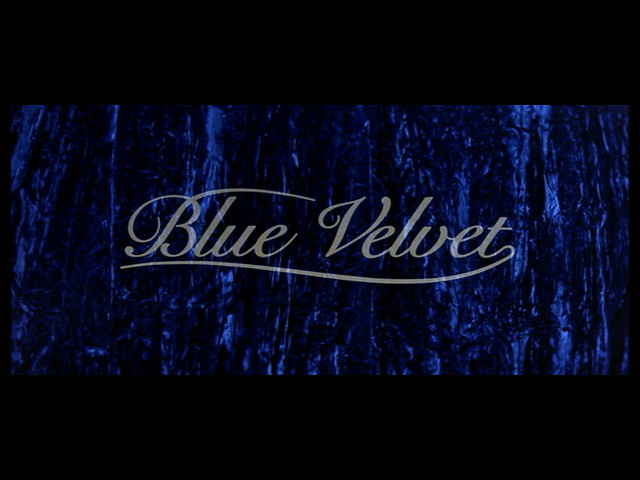
I had no idea how much this film has gotten under my skin over the years. Lynch is truly an artist in touch with the subconscious; he's not just accessing his own with unusual focus but he's apparently communicating to mine very directly as well. The more I watched the more I started to recognize shades of Blue Velvet in four or five different stories I've been working on -- and in different ways. I don't feel particularly bad about this, since I'm hardly ripping off David Lynch with my stories, but I find it interesting that so many disparate ideas may have been tinted unknowingly by this one film, which I've only seen a handful of times over the years.
The obvious is Jeffrey's quixotic journey down a rabbit hole into conspiracy and criminality, the desperate and slightly unmotivated obsession with discovering clues and uncovering something darker and bigger than himself and his world. Right there, that could describe three different characters or stories I've got locked up in my brain wanting out. But a more interesting one is one I hadn't consciously noticed in Blue Velvet before tonight: the use of parallel worlds bridged more by contrast than anything else. It seems obvious, but I hadn't been thinking so literally in these terms before tonight's viewing. Jeffrey straddles the line between the "good" side (Sandy, Detective Williams, his family) and the "evil" side (Dorothy, Frank Booth, Frank's "family") of the world, and each time he makes strides forward in one he makes the same strides forward in the other.
The easiest example is the obvious Sandy/Dorothy parallel. Jeffrey flirts with Sandy despite her having a boyfriend; Jeffrey ingratiates himself to Dorothy despite her being involved with Frank (and married!). Jeffrey confesses his love (the "good" expression of romantic feelings) for Sandy; Jeffrey fucks Dorothy (the "evil" expression). Jeffrey gets caught by Frank and beaten badly by him and his gang for his transgressions; Jeffrey gets caught by Sandy's boyfriend Mike and might have gotten beaten less badly (and less expertly) by Mike and his drunk friends, had the dark side not bled over and Dorothy wasn't standing naked and bruised on Jeffrey's lawn. Each of these events helps us chart the emotional difference between the two worlds, but more than that it shows us that these are both sides of one man: Jeffrey willingly pursues Sandy with feelings of love less than ten minutes of movie time before forcibly kissing (and eventually rolling around naked with and punching) Dorothy. These are both Jeffrey. One man, two sides, straddling two emotional worlds, having his cake and eating it too.
This duality of emotional worlds is the exact same territory Lynch explores in Lost Highway, Mulholland Dr., and arguably Inland Empire. So it shouldn't be much surprise that it was here first. It also shouldn't be much of a surprise that I picked up on it more this time, as I sit with my "doppelgänger story" in front of me, the story of a man coexisting in two different emotional worlds, one which could be called passive or "light" and the other aggressive or "dark." Just one more story I'm working on that owes a great unconscious debt to Blue Velvet.

No comments:
Post a Comment